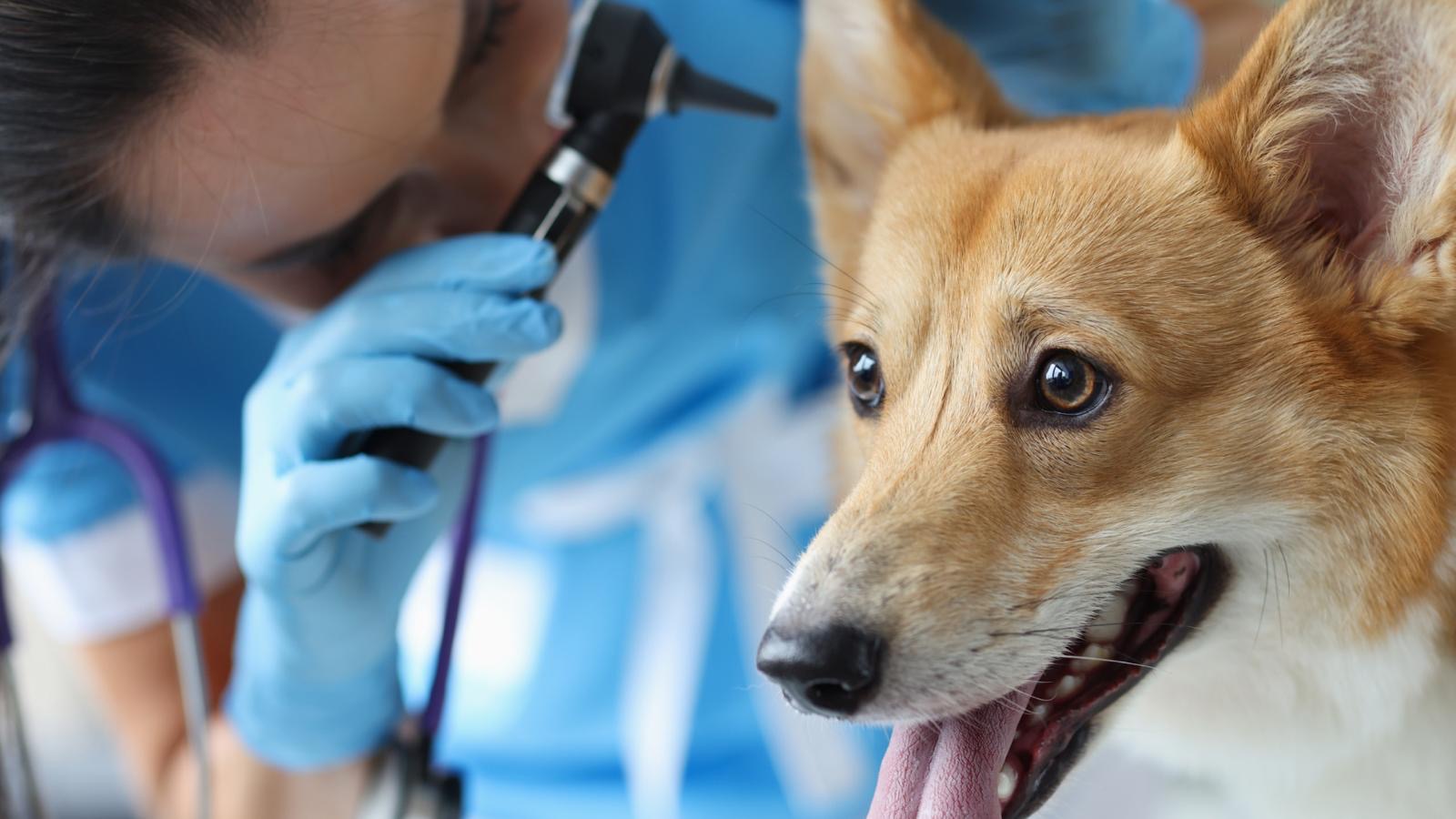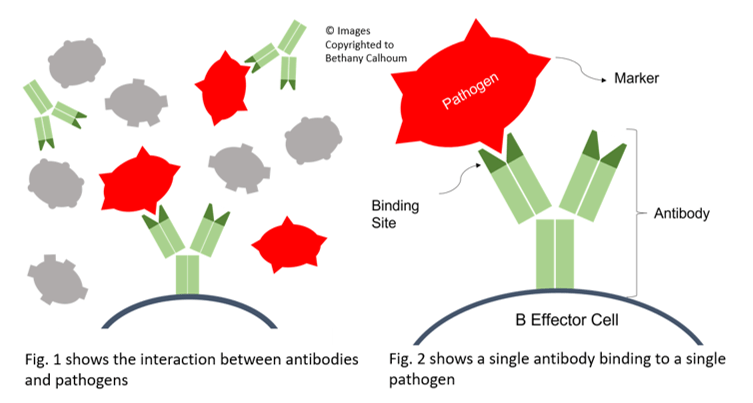Here at My Pet Nutritionist, we deal with a lot of cases involving thyroid health and disease. These problems can be supported through nutrition; and there are some important vitamins and minerals that contribute to thyroid health. Read on to learn about the importance of vitamins and minerals for thyroid health!
What is the Role of the Thyroid?
The thyroid is one of the major glands in the body, which can be located in the neck, close to the trachea. It is controlled by another important gland, the Pituitary Gland, which is found at the base of the brain.
The thyroid gland released various hormones, which are important for regulation of metabolic rate, heart rate and function, proper muscle function, cognitive development, growth and bone maintenance, and health digestion.
Findings Here
To find out more about hormones and their role in the body, read our blog:
Hormones and Their Role in the Body
Thyroid Diseases
There are a number of thyroid diseases. Let’s look at a few.
Hyperthyroidism
When a dog has hyperthyroidism, the thyroid is over-active, meaning it produces too much of the associated hormones.
Symptoms of Hyperthyroidism include:
- Behavioural changes, such as anxiety
- Restlessness
- Fatigue
- Overheating
- Diarrhoea
- Increased thirst
- Muscular weakness
- Itching
Hyperthyroidism can be a dietary illness. Some years ago, thyroid glands were often recommended as part of the offal in a dog’s raw diet, however this was knocked on the head when studies began to show hyperthyroidism was a risk due to the consumption of excess hormones in the thyroid gland being consumed.
Findings Here
Read more about Hyperthyroidism in dogs here:
Ultimate Guide to Hyperthyroidism
And in cats here:
Hyperthyroidism in Cats
Hypothyroidism
Hypothyroidism is the opposite of Hyperthyroidism, whereby the thyroid gland is under active. When the thyroid is underactive, it doesn’t produce enough of the thyroid hormones required for so many bodily functions. Hypothyroidism is much more common than hyperthyroidism.
Symptoms of Hypothyroidism include:
- Weight gain
- Lethargy
- Low tolerance for cold temperatures
- Excessive shedding and baldness
- Dark skin pigmentation
- Dull coat and dry skin
- Reduced heart rate
- Dry eye
Read more about hypothyroidism here:
Ultimate Guide: Hypothyroidism
Goiter
These are caused by the lack of signals from the pituitary gland to the thyroid gland, which causes the thyroid gland to function improperly. Clinical presentation of a goiter, is swelling in the neck area, due to the thyroid gland being enlarged.
While the goiter itself is not necessarily life threatening, it does signify an underlying condition which needs to be investigated by your veterinarian.
Symptoms of goiter include:
- Swelling of the neck area
- Rapid weight loss
- Wheezing and shortness of breath, both at rest and during activity
- Difficulty swallowing
- Reduced appetite
Goiters are often caused as a result of congenital (from birth) hypothyroidism.
Findings Here
Cancer
The final major potential thyroid related health problem is Thyroid Carcinoma – a malignant tumour of the thyroid.
The cause of this condition could be one of may things, and would be difficult to pinpoint unless on a case by case basis. It is, however, suggested that Thyroid Stimulating Hormone (TSH) may play a role in the formation of this cancerous tumour.
Read more about the role of thyroid hormones here:
Hormones, and Their Role in the Body
Some cases are able to be helped through surgery, which is a procedure called thyroidectomy. Dogs undergoing this surgery will require daily medications for life. Some thyroid carcinoma patients undergo therapy with radioactive iodine. The path of treatment very much depends on the condition and placement of the carcinoma.
Prognosis of those with thyroid carcinomas is generally good, to excellent.
Symptoms of thyroid carcinoma include:
- Swollen mass in the neck area
- Difficulty swallowing
- Noisy/difficult breathing
- Change in bark
- Increased thirst and urination
- Rapid weight loss
Findings Here
Findings Here
Important Vitamins
Vitamin D
Vitamin D is an essential, fat soluble vitamin, used for metabolic purposes, as well as digestion, heart rate regulation, muscle health, and many other bodily functions. One of the uses of vitamin D, is to reduce the risk of hypothyroidism.
There are many links between vitamin D deficiency and hypothyroidism, as proven through various studies, which show a low content of vitamin D in serum samples from patients suffering with hypothyroidism.
Sources of Vitamin D include:
- Egg yolk
- Salmon
- Red meats
- liver
Findings Here
Findings Here
Vitamin A
Vitamin A deficiency has been linked to thyroid issues, particularly hypothyroidism. Vitamin A deficiency is often associated with iodine deficiency; iodine is incredibly important to consume in the correct amounts to avoid hyper- and hypothyroidism. Iodine deficiency contributes largely to hypothyroidism.
Sources of Vitamin A include:
- carrot
- sweet potato
- liver
- spinach
- kale
- broccoli
- oily fish
- eggs
Read more about Iodine here:
The Importance of Iodine in Dogs
Findings Here
Vitamin B6
Vitamin B6 is absolutely essential for healthy thyroid function. It is responsible for utilising iodine in the thyroid to produce thyroid hormones. If the body is lacking in Vitamin B6, the thyroid is unable to produce thyroid hormones, which has a major knock on effect on other bodily functions.
Sources of Vitamin B6 include:
- banana
- avocado (flesh only)
- egg
- spinach
- liver
- red meat
- oily fish
Findings Here
Findings Here
Vitamin B12
Another deficiency common in those diagnosed with hypothyroidism is Vitamin B12. Vitamin B12 is essential for red blood cell metabolism, which is massively linked to the thyroid gland.
When the body lacks Vitamin B12, it is at a higher risk of pernicious anaemia. This is found most commonly in patients who have been diagnosed with an autoimmune thyroid disease.
Sources of Vitamin B12 include:
- beef
- chicken
- oysters
- lamb
- egg
- turkey
- pork
- oily fish
Read more about Vitamin B12 here:
Why Your Dog Needs Vitamin B12
Findings Here
Findings Here
Findings Here
Important Minerals
Iodine
As previously mentioned, Iodine is essential for thyroid function as it is the mineral that is used to produce thyroid hormones. Too little iodine can cause hypothyroidism, too much iodine can cause hyperthyroidism.
Iodine consumption also highlights the importance of a meat based fresh diet. Studies in humans, show those eating a primarily plant based diet are more prone to hypothyroidism due to the lack of iodine in their diet.
Sources of iodine include:
- Seaweed
- Oily fish
- Shellfish
- Eggs
Findings Here
Findings Here
Selenium
Selenium is an important mineral, and is an essential part of thyroid hormone production and stimulation. Due to the role it plays in production of thyroid hormones, selenium plays a huge role in growth and development, as well as regulation of metabolic rate.
An additional use of selenium with regards to the thyroid, is it’s ability to destroy free radicals which may damage the thyroid.
Sources of selenium include:
- Sunflower seed
- Some nuts (avoid macadamia and peanut)
- Egg
- Chicken
- Beef
- Turkey
- Beef
- Pork
- Oily fish
Findings Here
Findings Here
Magnesium
Some of the thyroid hormones are inactive, unless ‘turned on’. The T4 hormone is inactive, until magnesium converts it into the T3 hormone, which is active. T4 needs to be converted into T3 to enable the production of stronger thyroid hormones which are then utilised by the body; think of it as a chain reaction, or like dominoes falling on one-another. Without magnesium as the catalyst for this reaction, the thyroid function is dampened.
Sources of magnesium include:
- Spinach
- Pumpkin seeds
- Avocado (flesh)
- Banana
- Leafy greens
- Almonds
- Quinoa
Findings Here
Findings Here
Zinc
Zinc is another mineral which is essential for hormone synthesis in the thyroid. Zinc deficiency can also be triggered by a lack of thyroid hormones, much like a vicious circle; which is why zinc is such an important mineral to include in the diet.
Sources of zinc include:
- Oysters
- Pumpkin seeds
- Eggs
- Red meats
- Shellfish
Findings Here
Copper
Essential for both hormone synthesis, and hormone absorption, copper mainly stimulates the production of T4 hormone. It also aids the thyroid in controlling calcium deposits in bones.
It is suggested that a copper deficiency also concerns the communication between the pituitary gland and the thyroid gland – the pituitary gland is what feeds hormones into the thyroid gland, so the pituitary-thyroid axis is incredibly important to keep healthy.
Sources of copper include:
- Shellfish
- Seeds
- Nuts (avoid macadamia and peanut)
- Offal
Findings Here
Findings Here
Iron
Iron works in tandem with copper, and plays a large role in the conversion of inactive T4 hormone into the active T3 hormone, which enables production of the hormones needed for various bodily functions. Iron also aids utilisation of iodine in the thyroid.
Iron deficiency causes anaemia, which can be linked to poor thyroid health due to a lack of iron, and the ability to produce the suitable hormones to keep the anaemia at bay.
Sources of Iron include:
- Red meat
- Oily fish
- Shellfish
- Offal
- Leafy greens
- Chicken
- Pumpkin seeds
Findings Here
Findings Here
Manganese
The final important mineral we will talk about is Manganese. Manganese is largely responsible for the production of T4 hormone (Thyroxine). Another role of manganese is to protect the thyroid from oxidative stress. It acts as an antioxidant for the thyroid, so is paramount to include in the diet. A damaged thyroid, won’t function well, which can cause a huge variety of health problems.
Sources of manganese include:
- Sweet potato
- Pineapple
- Shellfish
- Egg
- Leafy greens
Findings Here
Findings Here
If your dog displays any of signs and symptoms of a poor functioning thyroid, we suggest seeing your vet and being tested. We particularly like hemopet 5 thyroid panel to make sure it is a robust testing.
If your pet has a deficiency, vitamins and minerals will have to be administered for a therapeutic effect; no amount of mineral rich food will rectify a genuine deficiency.
If your dog suffers with any thyroid related conditions, or you feel your dog may benefit from improving thyroid health, please don’t hesitate to book in with one of our team to discuss!
Team MPN x







